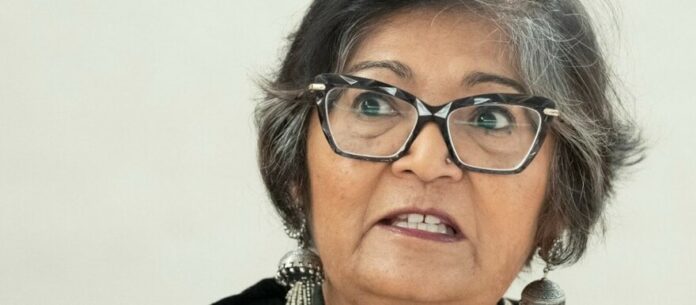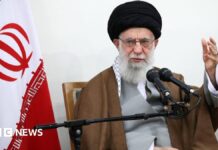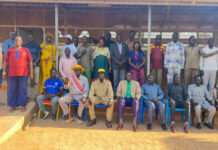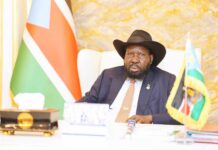The UN Commission on Human Rights in South Sudan has warned that the country is teetering on the brink of another devastating war, urging the UN General Assembly and international partners to step up diplomatic and justice efforts before the peace process collapses entirely.
Addressing the General Assembly’s Third Committee today, Commissioner Barney Afako said the 2018 Revitalized Peace Agreement — once viewed as a pathway to stability — is “falling apart” amid escalating violence, arbitrary detentions, and systematic violations by government forces.
“All indicators point to a slide back toward another deadly war,” Afako told delegates. “The ceasefire is crumbling, political detentions are being used as tools of repression, and aerial bombardments are terrorizing civilians. The peace process is being dismantled in plain sight — the international community must act before it’s too late.”
The Commission reported that armed clashes have reached levels unseen since 2017, driven by a volatile mix of political rivalries, ethnic divisions, and local grievances. Government reshuffles and partisan appointments have deepened mistrust among peace signatories, while fighting along tribal lines is being exploited by national actors for political gain.
Since March, more than 370,000 civilians have been newly displaced by violence, bringing the number of South Sudanese refugees in neighboring countries to 2.5 million. Another two million remain internally displaced.
Commission Chair Yasmin Sooka condemned the suffering of civilians as the “direct consequence of political failure,” citing continued reports of bombings, sexual violence, and forced child recruitment.
“This war on the people of South Sudan is man-made and preventable,” Sooka said. “It will end only when political leaders are held accountable and justice is no longer optional.”
The Commission called for urgent, coordinated international action — particularly from the UN and African Union — to end impunity, protect civilians, and revive the stalled transition. “Peace will not come through words or handshakes,” Sooka added. “It requires concrete steps to uphold justice and rebuild institutions that serve people, not power.”
An updated briefing to the Assembly detailed the collapse of the ceasefire in Nasir, where government deployments of partisan troops have reignited conflict despite calls for neutral forces. Opposition leaders have been arbitrarily detained, contravening earlier government commitments to curb the powers of the National Security Service.
The Commission’s February report also documented widespread sexual violence, extrajudicial killings, and forced recruitment of children, all amid the erosion of rule-of-law institutions and chronic underfunding of justice mechanisms.
Commissioner Carlos Castresana Fernández said entrenched corruption remains a major driver of violence.
“Billions in oil revenues have been siphoned off while citizens starve,” he said. “Corruption is not a by-product of conflict — it’s one of its engines. Accountability for economic crimes is essential to stop the violence that corruption sustains.”
The Commission’s September paper, “Plundering a Nation: How Rampant Corruption Unleashed a Human Rights Crisis in South Sudan,” details how the diversion of oil wealth has fueled both conflict and deprivation.
Concluding its address, the Commission urged accelerated action to establish the long-delayed Hybrid Court for South Sudan, renewed regional diplomacy, and a fully inclusive political dialogue.
“South Sudan’s people cannot endure another collapse,” Sooka said. “The time for expressions of concern has passed — only coordinated and decisive action can prevent a return to full-scale war.”





